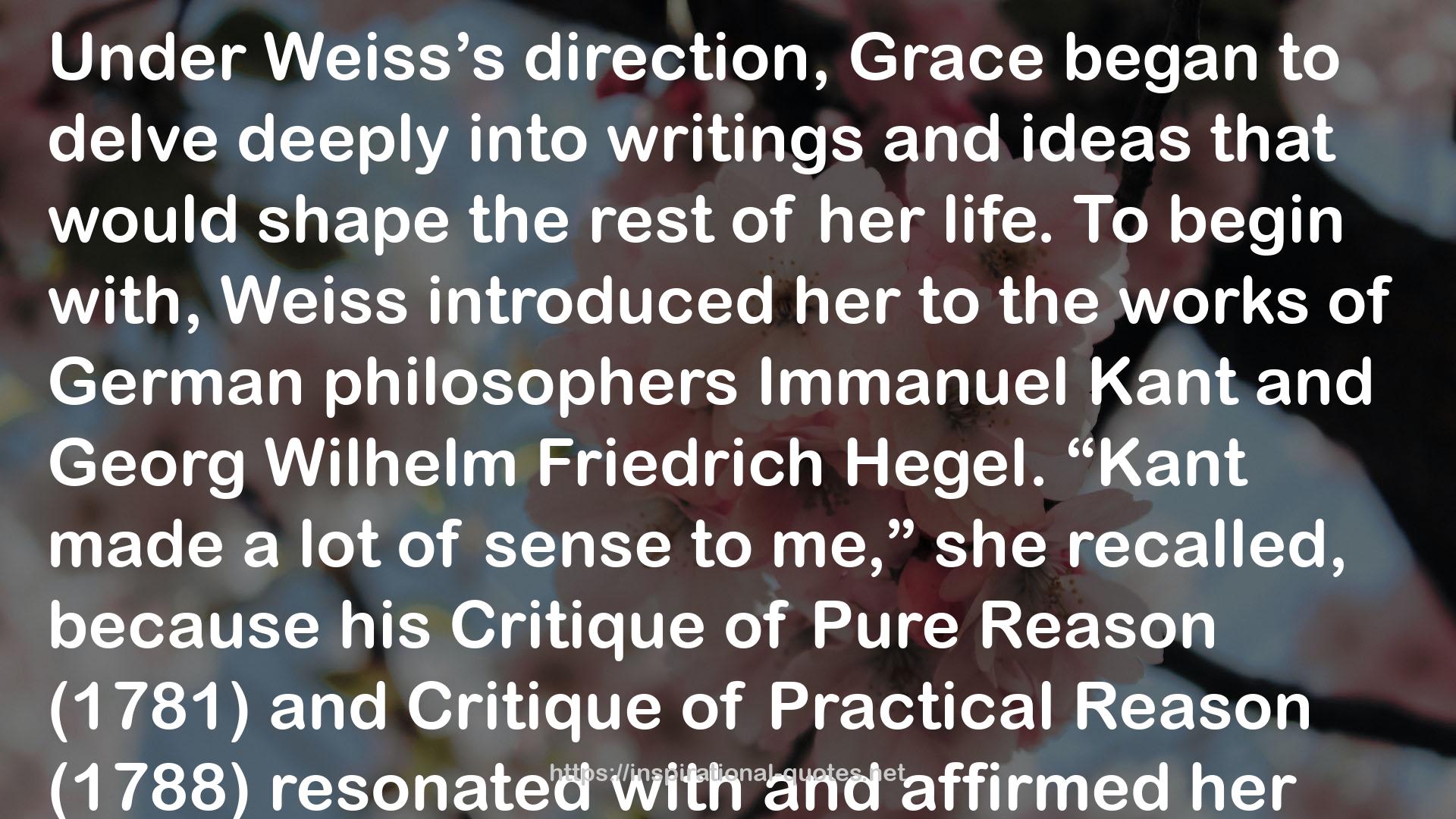" Under Weiss’s direction, Grace began to delve deeply into writings and ideas that would shape the rest of her life. To begin with, Weiss introduced her to the works of German philosophers Immanuel Kant and Georg Wilhelm Friedrich Hegel. “Kant made a lot of sense to me,” she recalled, because his Critique of Pure Reason (1781) and Critique of Practical Reason (1788) resonated with and affirmed her skepticism of traditional philosophy. She was especially drawn to Kant’s dismissal of the idea of a final, eternal, static truth and to his concept of knowledge. Knowledge, Kant argued, was not simply the correspondence between ideas and objective reality but rather resulted from the dynamic interaction between our selves and reality. In his view, human minds impose forms on experience, giving us our reality. Grace found Kant “tremendously empowering,” even describing his philosophy as a “watershed” in her life. Not only was her intellectual trajectory taking shape, Grace could also see opening up a path to the answers she had sought back at Barnard. “Slowly but surely I was being prepared to take my place in the world. For if we shape reality by how we think, we can also change reality by what we do.” 91 "
Image for Quotes
